John Lewis Remembered: The AEPi Connection
Dale Schwartz recounts his experiences supporting the Civil Rights Movement and his friendship with Congressman John Lewis.
Sixty years ago, I was a freshman at Vanderbilt University in Nashville. A proud AEPi pledge, I was on “telephone duty” in the fraternity house when the phone rang. A young African American college student from Fisk University was calling the Jewish fraternities to seek support for what later became known as a sit-in demonstration at a lunch counter downtown at Woolworth’s in Nashville. Students from Fisk, Meharry Medical College, American Baptist Theological Seminary, Tennessee Agricultural and Industrial College and a local high school were to participate.
A short while earlier, in Greensboro, N.C., a group of young Black students demanded service at a segregated lunch counter in a Woolworth’s store. They were refused service but came back every day. Their efforts let to the sit-in movement across America and ultimately led, in no small measure, to the passage of the Civil Rights Act by President [Lyndon] Johnson.
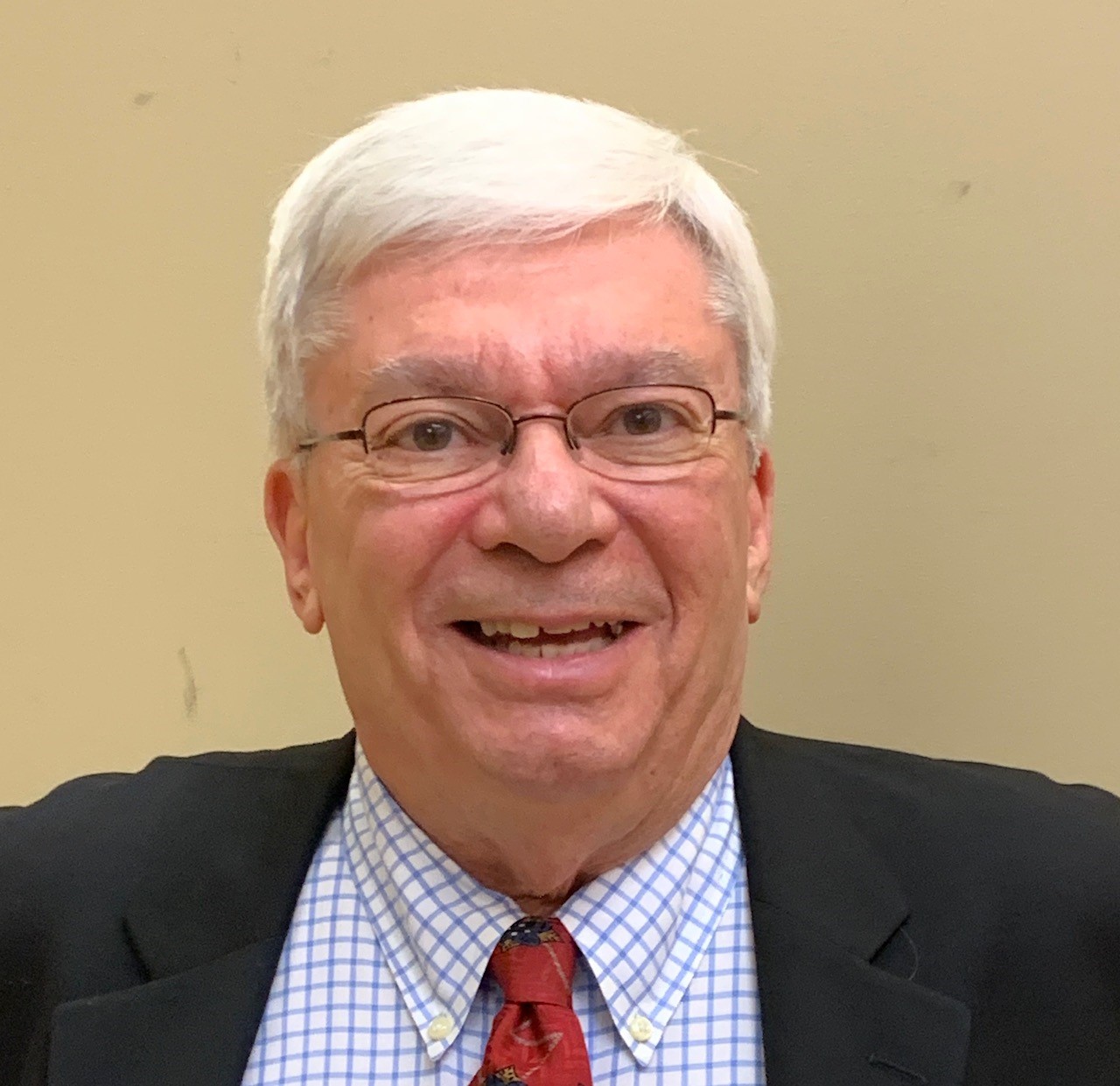
Several of my AEPi brothers and I thought it would be “fun” to be there. So, on a Saturday just before noon, we showed up at Woolworth’s. The black students came in and sat down at the lunch counter and politely asked for menus. The waitresses were prepared and put up a CLOSED sign on the lunch counter. One of the waitresses poured a vanilla milk shake over the head of one of students, turned around and left. A few minutes later the Nashville police arrived. They mocked us and called us “n—-r lovers.”
Within an hour, due in no doubt to the radio reports of the demonstration, the Klan wannabees showed up, mostly dressed in overalls and blue jeans, some with pints of whiskey sticking out of their back pockets. One short, fat white man walked up to the back of one of the young women sitting at the counter and put his lighted cigar into her back. To this day, I sometimes wake up at night remembering the sound of his hot cigar on her back — like a hamburger hitting the grill. Maybe I just imagine the sound, but it still seems real to me.
We jumped that man and beat him up. But the Klan types turned their full attention to beating us kids. I got hurt so badly that I was taken to Vanderbilt Hospital ER for treatment. The local policemen stood by, doing nothing to stop the beatings, and just laughed at us. Luckily nothing on me was broken. My mother and father got to see me being beaten on the national network news that evening, as photographed by the local TV stations who arrived shortly after the rednecks. The university threatened to kick us AEPi brothers out of school for “inciting a riot.”
We dared them to do that, and they backed down.
The Nashville sit-ins (as they came to be known) led to a boycott of Nashville merchants and demonstrations by thousands of local citizens. With the leadership of the mayor of Nashville, the lunch counters and restaurants in the city agreed to provide service to Black customers.
We didn’t know the names of any of the Black students at that lunch counter that day, but we will never forget their courage.
Turn the clock forward about 30 years. My law firm purchased a table at a birthday party and fundraiser for Congressman John Lewis at the Marriott hotel in downtown Atlanta. I had known John Lewis quite well and had served on some Black-Jewish committees with him, as well as working on other legislative matters of concern to the Jewish community. Someone had put together a video of John’s life, from his preaching to the chickens on his family’s farm in Alabama to his rise to Congress. They found an old black-and-white film clip from one of the networks, and there I was for all of two seconds on the screen, being beaten up.
My wife let out a scream when she saw me, and John Lewis, who was sitting a few tables away from us, came right over to ask my wife what was wrong. When she told him, he asked us to stay after the dinner ended.
When everyone else had left, John had the technician run the video again and he stop-framed it when my face appeared, replete with my pompadour and big, black Buddy Holly glasses. John hugged me and remarked that we had known each other for over 30 years, but never realized we were together at that lunch counter in Nashville.
John looked at me and my wife and said: “Every Black politician in America claims he was at that lunch counter in Nashville, but I’m the only one with a white witness!” I will never forget that moment.
When my three daughters were little ones in school and went on field trips to Washington, they always visited Congressman Lewis. He was so gracious to the children and would introduce himself to each child and ask their names. If one said “Schwartz” he would ask them if they were related to Dale Schwartz. Then he would tell the kids that we were friends.
President Obama mentioned the Nashville lunch counter sit-in in his eulogy of John at his funeral. It made me remember this story and how, when John and I were together over the years, he mentioned to me that he will never forget how we Jews, and especially Jewish kids, were the only ones they could turn to for support and help in those early days. I am proud that my AEPi brothers joined me that day. None of us will ever forget that day, or the reasons we were there.
John Lewis was a small-in-stature person. But he was a giant among men. Rest in Peace my friend.
Dale Schwartz, an Atlanta immigration lawyer, has held various leadership positions in the Jewish community, including roles with with the Anti-Defamation League and the Hebrew Immigrant Aid Society.
- Anti-Defamation League
- Hebrew Immigrant Aid Society
- Civil Rights
- aepi
- Vanderbilt University
- Meharry Medical College
- Fisk
- American Baptist Theological Seminary
- Tennessee Agricultural and Industrial College
- Lyndon Johnson
- Civil Rights Act
- Congressman John Lewis
- Racism
- President Barack Obama
- John Lewis



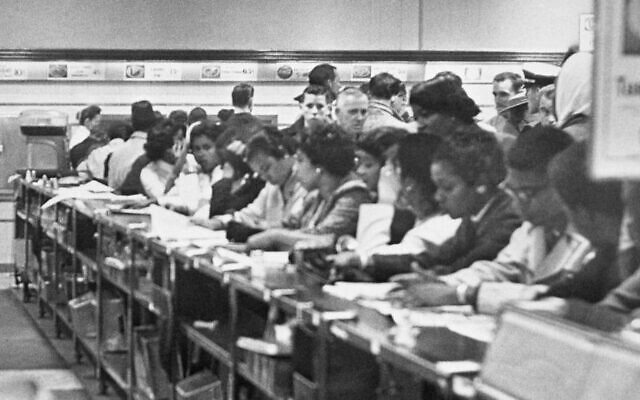
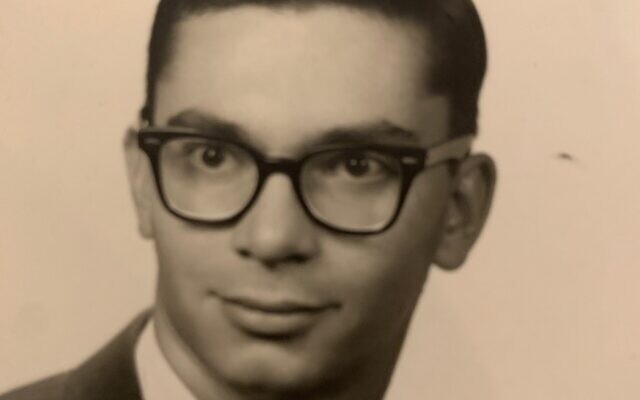
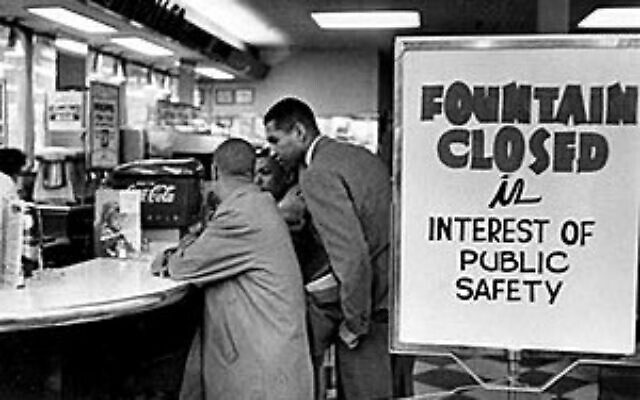
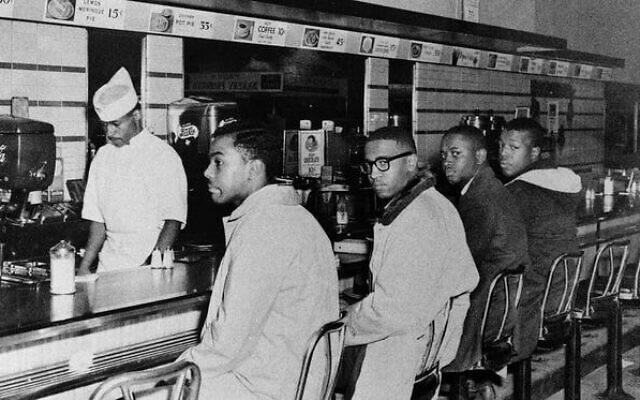
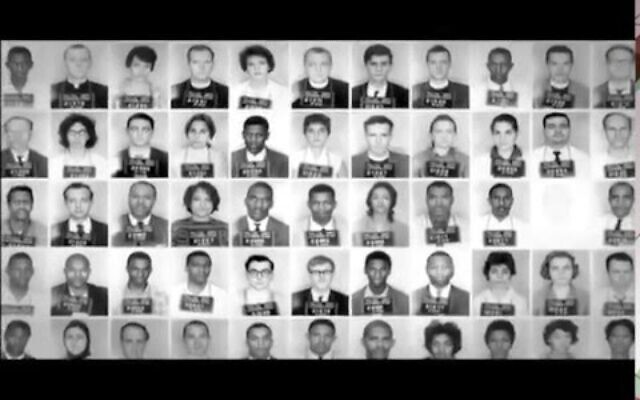
comments